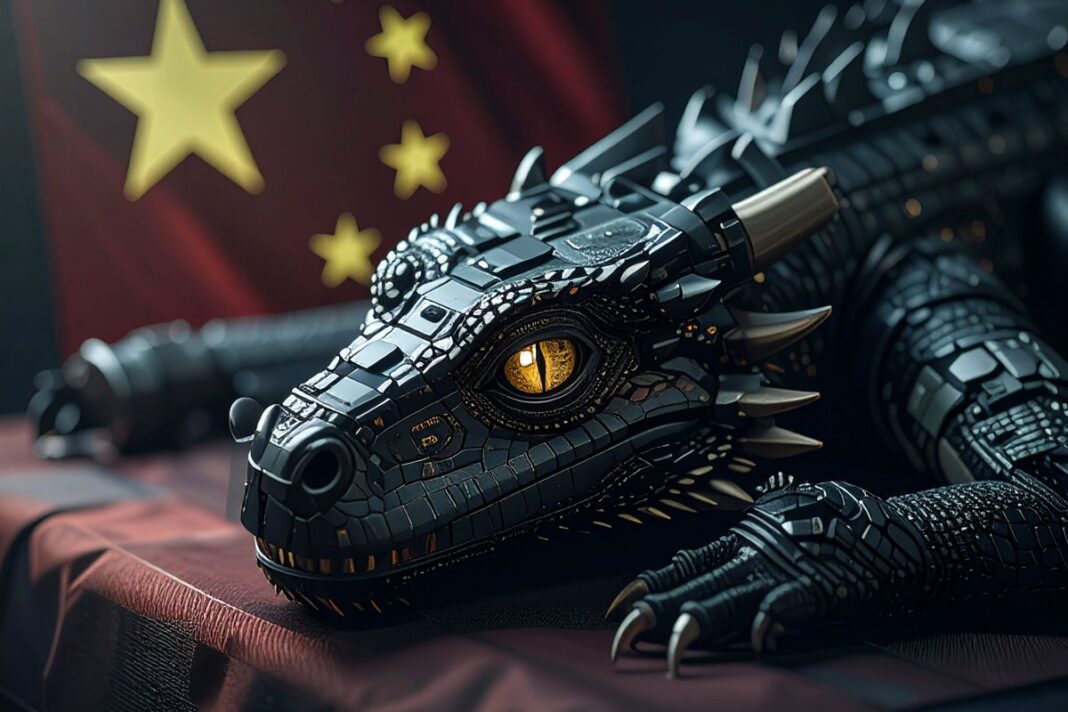China may not be in the eye of the hurricane at the moment as it recently made a truce agreement in the trade tariff war it had declared with the US, but it is naive to believe that it has backed down in asserting its claims both to its Asian competitor, India, and to Europe and America. We could say that it is rather like a dragon sleeping with one eye open, waiting for the right moment to strike and seize its prey.
Starting from the trade war with the US, at the beginning of last week, Trump and Xi Jinping agreed that for the next 90 days the additional US tariffs on Chinese products would rise to 30% and China’s tariffs on US products would be reduced to 10%.
This is not a tangible white flag between the US and China, but a fragile truce under the pretext of which the antagonistic situations may become even more acute. Bilateral trade between the US and China, worth USD 600 billion, could easily be disrupted by new tariffs after these 90 days.
China is playing catch-up in order to hit the US, instrumentalizing the common interests it has with Russia. The two countries base their cooperation on their rivalry with the West, especially the United States, which they accuse of imposing hegemony in international relations. “Against the international trend of unilateralism and hegemonic pursuit behavior, China will cooperate with Russia in assuming the special responsibilities of the world’s great powers,” Xi Jinping assured Putin. “Mutual political trust between China and Russia is deepening and ties for pragmatic cooperation are getting stronger,” the Chinese president continued. The Russian president assured that Russia and China will develop their relations “in the interests of the peoples of the two countries and not against anyone. Our relations are based on the basis of parity and are mutually beneficial.”
In addition to the China-Russia ties, which are strengthened by the mutual communist background of the two countries, China has also attracted Turkey in terms of military arms purchases.
Of course we should not forget that Turkey and China, both are strengthening Pakistan in the war that is currently raging between India and Pakistan. China is wooing Pakistan as it wants Pakistan to come out ahead of India as the biggest economic power in Asia and Turkey is militarily strengthening Pakistan as they are linked by their mutual religious background of Islam.
Turkey and China have collaborated with Kazakhstan, on the new Tais 8×8 armoured fighting vehicle, thus creating a tripartite defence cooperation. The vehicle was premiered on April 5 at the military parade in Astana, in the presence of senior officials from the Turkish Otokar and Chinese Norinko. Turkey and China have been cooperating commercially for decades, but now this cooperation is moving to the level of military technology, with know-how exchange, joint productions and access to critical third-country markets such as Central Asia. The co-production of turrets, armour and advanced sensors opens up new horizons of defence autonomy and export strategy for both countries.
The strengthening of this relationship should theoretically be a cause for concern in NATO, as Turkey, a member of the alliance, is pursuing parallel military partnerships with China, a geopolitical rival of the West. On the other hand, Beijing sees Ankara as a gateway to the Middle East and Europe, taking advantage of the technological networking and industrial networks of the Turkish defense industry.
Moreover, China has been far from indifferent to the India-Pakistan war as it has an interest in hurting India. Shares of Chinese company Avik Chengdu Aircraft rose 40% this week as Pakistan alleged that it used AVIC-produced J-10C fighter jets to shoot down Indian fighter jets – including the advanced French-made Rafal during a dogfight on Wednesday.
India did not respond to Pakistan’s claims or acknowledge any aircraft losses. When asked about the involvement of Chinese-built aircraft, a Chinese foreign ministry spokesman said that he was not familiar with the situation.
China has not fought a major war for more than four decades, but under Xi Jinping, it has modernised its armed forces, investing resources in the development of sophisticated weapons and technologies. Of course, this modernisation effort has also extended to Pakistan, which has long been hailed by Beijing as its “iron-clad brother”.
In addition to China’s political moves, we must also shed light on the social sector of this state in which fundamental human rights and freedoms are far from being protected. Xi Jinping is making a great effort to present an embellished image of the communist, totally illiberal state of China, often using the domestic media, which he forces to present only the positive developments taking place in the state. Of course the international community continues to express concerns about the human rights situation in China with Human Rights Watch and Amnesty International frequently sounding the alarm.
For example, the September 2025 release of the Chinese-American pastor David Lin, who had served almost twenty years in prison, was widely reported in the Chinese media as a milestone for the improvement of religious freedom in the country. According to a BBC report on 18 May 2025, conditions in China’s prisons still resemble the Middle Ages. According to Australian citizen Matthew Randal who spent five years (from 2020 to 2025) in Beijing’s No. 2 prison – a facility used for international prisoners in China – Chinese prisons still inflict severe corporal punishment, forced labour, food deprivation and psychological torture.
The juxtaposition of all these events that are happening in China at the moment shows that the country is taking advantage of the fragile balance that exists in the world at the moment, with three wars raging simultaneously, to try to impose itself in the West by overcoming America and in the East by overcoming India. Unfortunately, however, what will stand in the way of China’s expansionist ambitions is not its military or economic weakness but the political and social perception of the communist regime, which does not see man as an autonomous entity but as a cog in a machine that works to enrich China’s state capitalism. As Priest Chishol says in his book “Cronin’s Keys to the Kingdom,” a literary masterpiece dealing with a mission in China “Fear does not build empires, nor hearts”.








